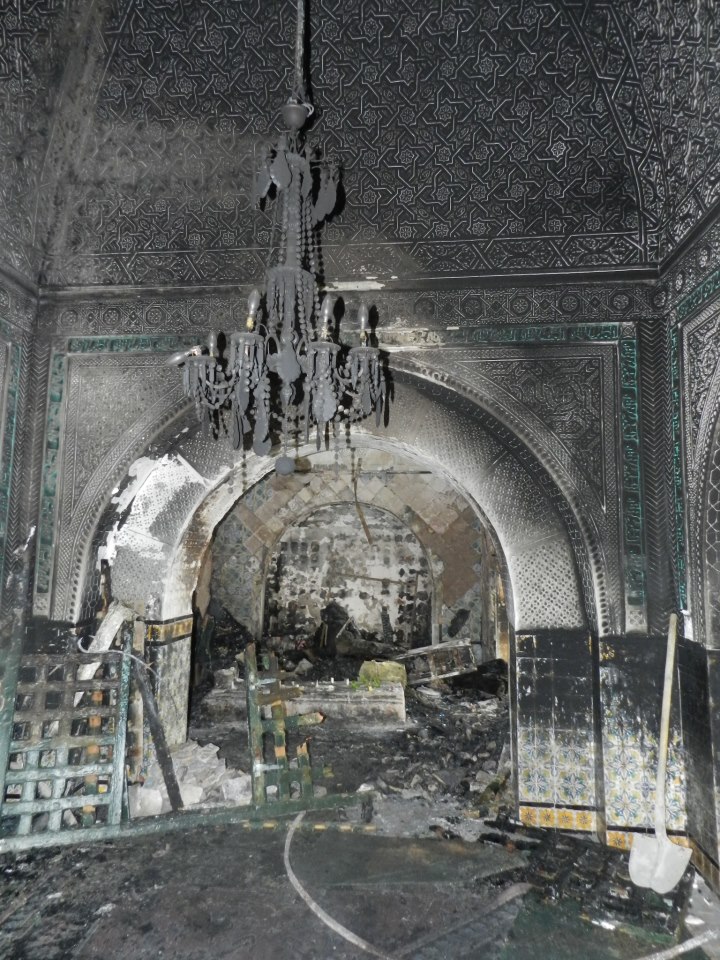Planned destruction of Sufi architectural heritage in Tunisia
Press release, 11 March 2013
Recalling the resolutions adopted on religious heritage by the 14th, 15th, 16th and 17th General Assemblies of ICOMOS regarding the protection and enhancement of sacred heritage sites, buildings and landscapes;
Following the previous statements on the planned destruction of sacred heritage sites in Libya and Mali;
ICOMOS condemns the recent destructions of Sufi cultural heritage in Tunisia and continued threats to this heritage in several countries of the region.
Having always been esteemed and regarded with affection, Sufi architectural heritage in Tunisia is now threatened by planned acts of destruction which began shortly after the revolution of 17 December 2010 – 14 January 2011. Destruction has focused on the zaouias - mausoleums housing the tombs of patron saints - which serve as important places of pilgrimage for communities. These sacred places are being attacked by fanatical followers of a strict interpretation of Islam, which has always been foreign to Tunisia and its inhabitants, who have always lived in a spirit of great tolerance towards other religions and spiritual practices.
The Sufi heritage occupies a special place in the daily lives of Tunisian communities and represents an integral part of their identity and collective memory. Any damage to this heritage will harm the identity of a community and inflict irreparable loss to local spiritual and social values. The consequences can be disastrous both in terms of social cohesion and for the conservation of an important component of the immovable cultural heritage of the country.
The first attacks dating back to Spring 2011 affected monuments in small towns, such as the tombs of Sidi Bou Mendel in Hergla, of Sidi Abdelkader in Menzel Bouzalfa at the Cap-Bon, and of Sidi Bou Said El Béji in Sidi Bou Said near Carthage. Threats have now spread to the mausoleum of Saida Manoubia in the Manouba, near Tunis, and even to the mausoleum of Sidi Sahbi in Kairouan, which is at present under military protection.
The World learnt with deep concern of the destructions and damages inflicted on the Sufi heritage in other African countries, including Libya and the regions of northern Mali: Timbuktu, Gao and Kidal. Recent attacks on this type of heritage are now also reported from Syria.
ICOMOS therefore calls for a global and collective response including both:
- The cooperation of the responsible public authorities and the mobilization of local communities to implement concrete measures to protect the Sufi heritage; and,
- Awareness raising among all stakeholders and the general public of the outstanding cultural value of this heritage and its unparalleled social and spiritual roles.
Paris, 11.03.2013
Download the full Statement in PDF
Links
- ICOMOS Statement on Intentional Destruction of Cultural Heritage in Libya (25 September 2012)
- ICOMOS Statement on Mali (2 July 2012)
ICOMOS
A unique non-governmental, not for profit international organisation, committed to furthering the conservation, protection, use and enhancement of the world’s cultural heritage
ICOMOS is dedicated to the development of common doctrines, the evolution and circulation of knowledge, the creation of improved conservation techniques, and the promotion of cultural heritage significance. ICOMOS has built a solid philosophical, doctrinal and managerial framework for the sustainable conservation of heritage around the world. As an official advisory body to the World Heritage Committee for the implementation of the UNESCO World Heritage Convention, ICOMOS evaluates nominations and advises on the state of conservation of properties inscribed on the World Heritage List.
Contact:
Tel. + 33 (0) 1 45 67 67 70
